In Chapter 8: The Scroll in the Wall — Josiah’s Discovery, a single piece of parchment rewrites Judah’s religious life. Found during temple renovations, read aloud to a young king, and declared urgent by priests and prophets, the scroll didn’t just inspire Josiah’s reforms—it authorized them.
But this chapter asks: who really benefited?
The scroll—likely an early version of Deuteronomy—emphasized one God, one altar, and one capital. That message just so happened to align with Josiah’s need for tighter control over worship, power, and identity. This wasn’t the full Torah. It was a law code wrapped in theological fire and political convenience.
The result?
-
Local shrines destroyed
-
Priests removed from power
-
Worship centralized in Jerusalem
-
The king elevated as the protector of the covenant
Whether the scroll was truly ancient or recently edited remains debated. But what’s clear is this: it didn’t fall from the sky. It emerged from a system of power, one that used sacred text as leverage.
Josiah’s reform wasn’t just spiritual—it was state-sponsored monotheism.

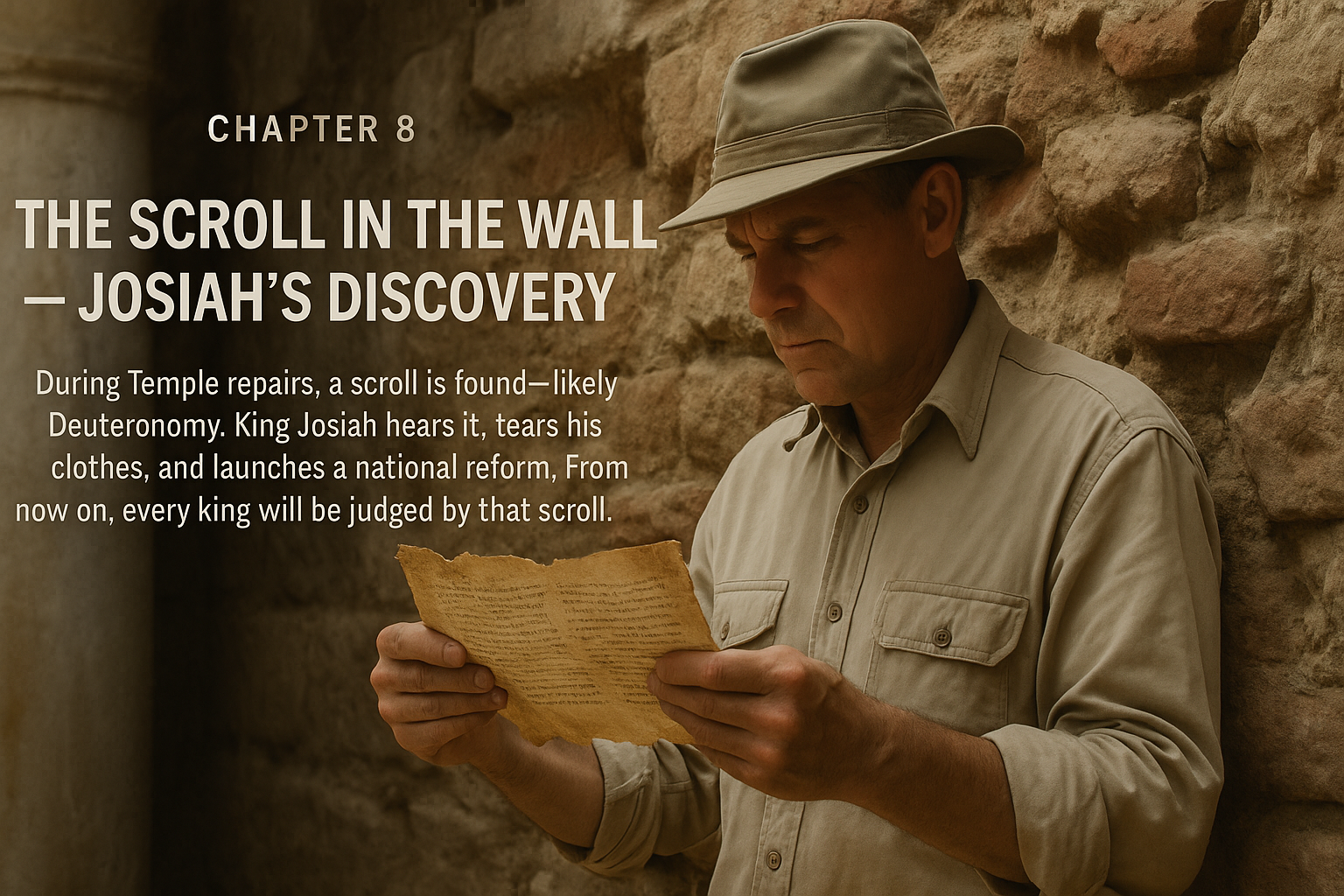
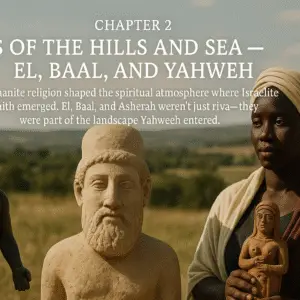
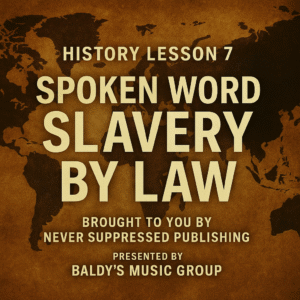
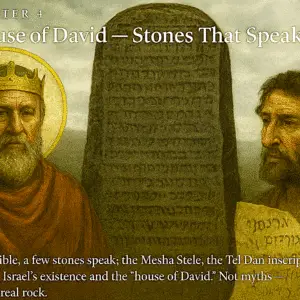
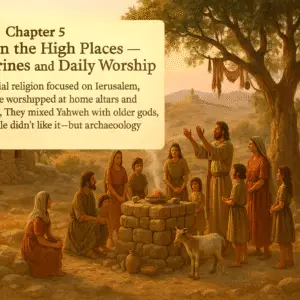
Reviews
There are no reviews yet.